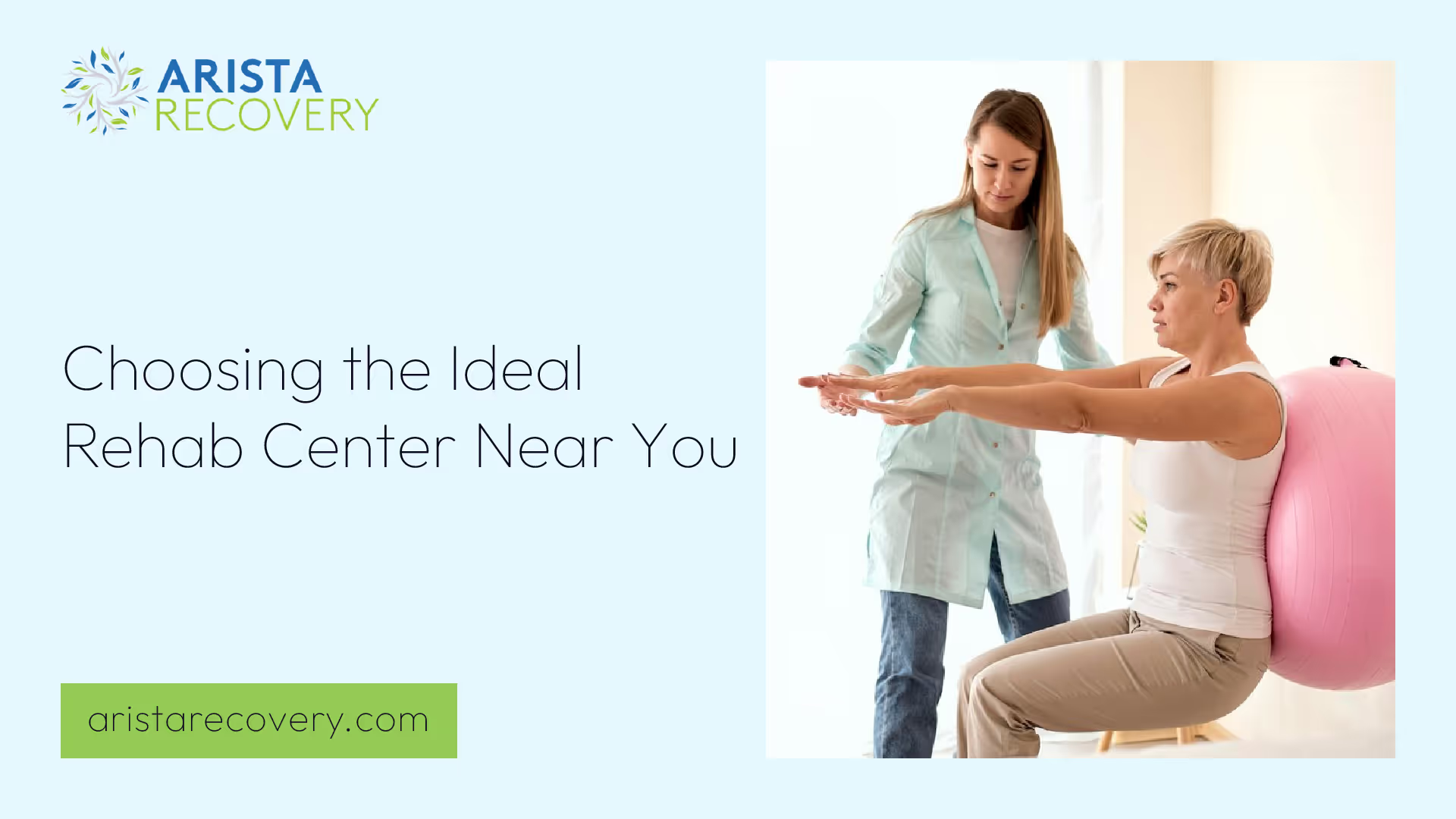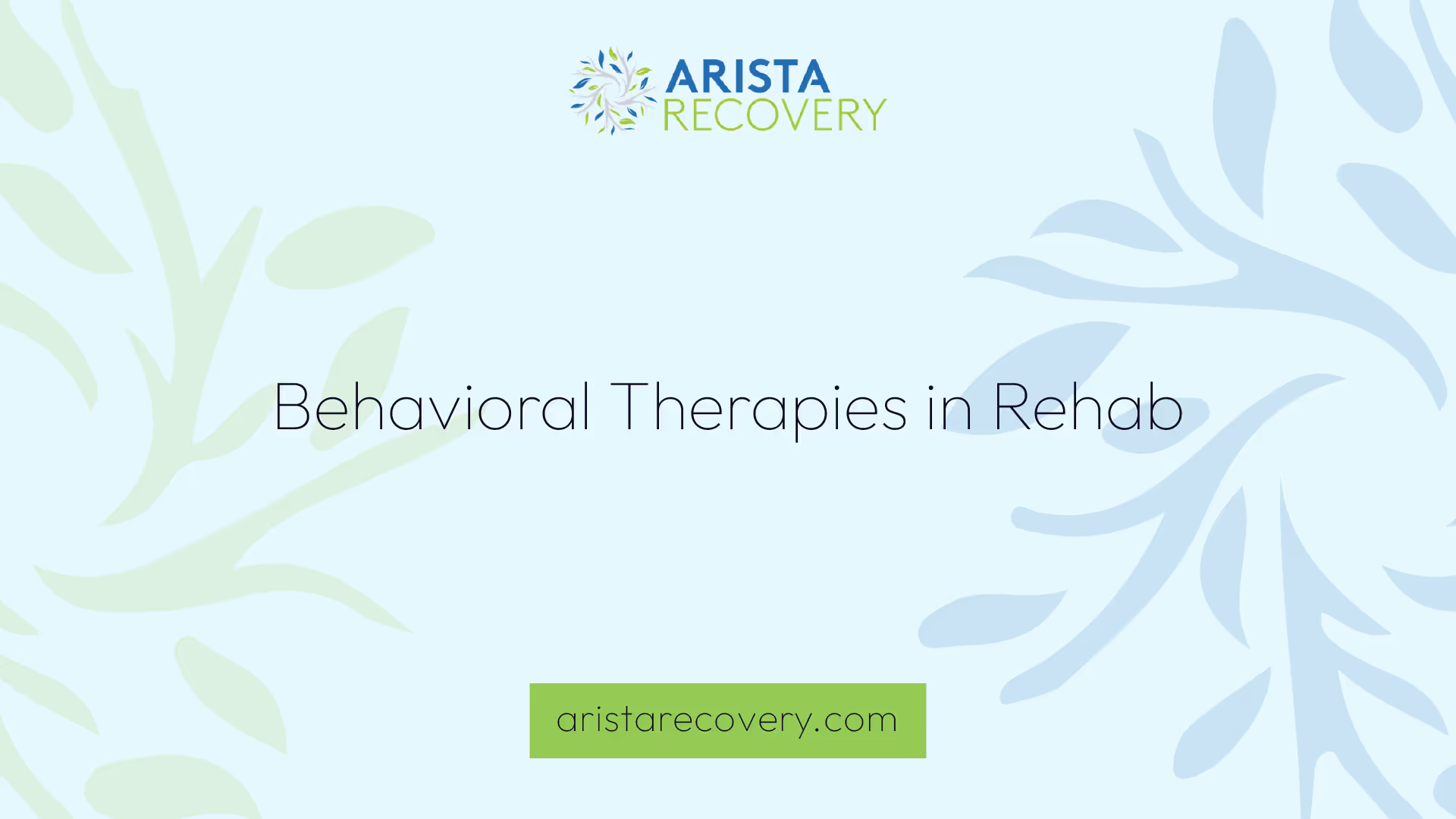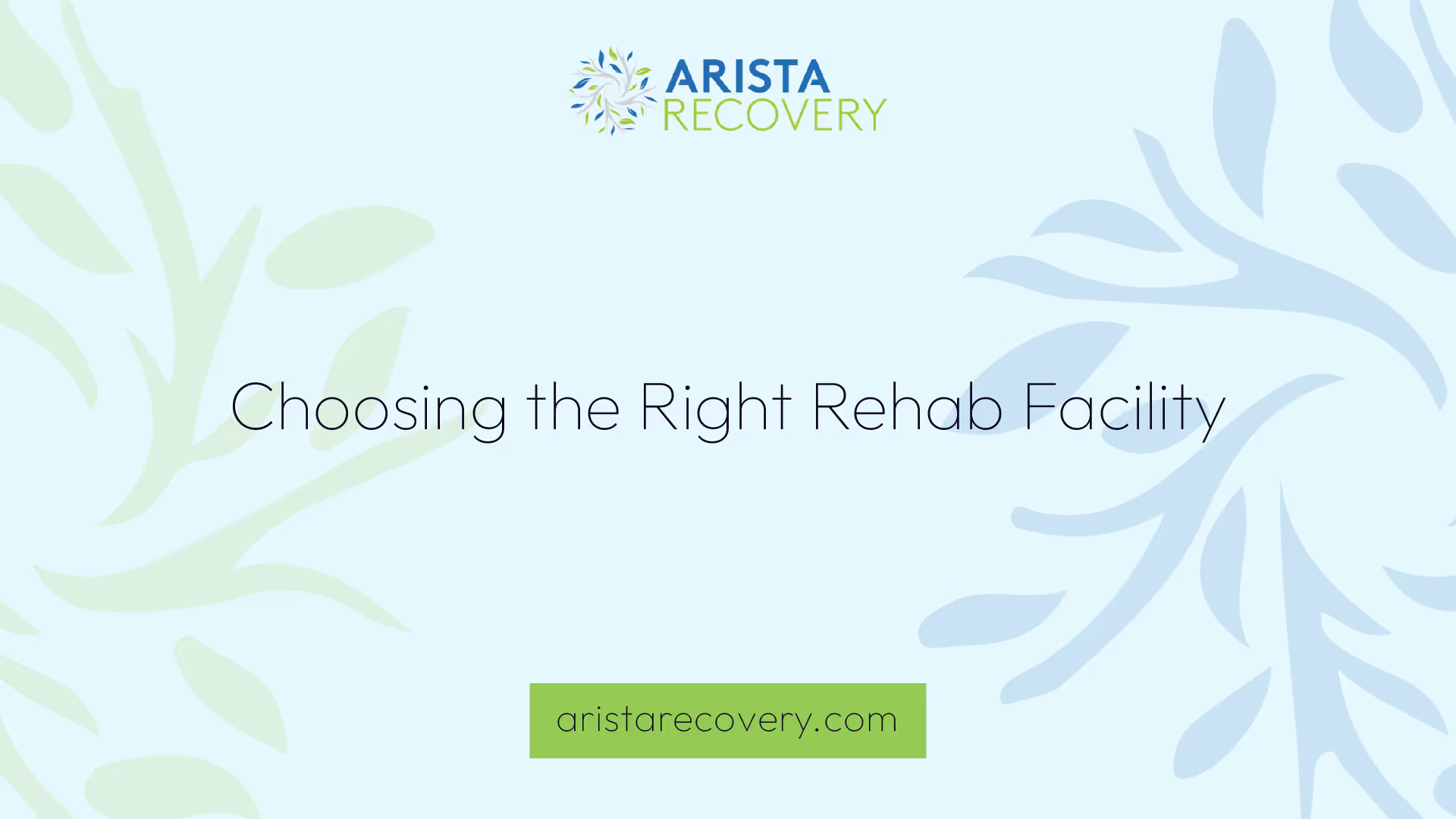Choosing the Ideal Rehab Center Near You


Understanding Addiction Rehab
Addiction rehab is a crucial step towards recovery for individuals struggling with substance abuse. This process involves a series of treatments and therapies designed to help individuals overcome the physical and psychological aspects of addiction. In this section, we will discuss the impact of addiction on society, disparities in treatment in the US, and the importance of comprehensive care.
Impact of Addiction on Society
The effects of addiction are far-reaching and not limited to the individuals suffering from the disorder. In 2021, over 106,000 people died in the United States from drug-involved overdoses, which equates to nearly 292 people a day. Furthermore, from 1981-2020, unintentional poisoning resulting from drug overdoses has become the number one cause of injury-related death in the United States [1]. This alarming trend underscores the societal impact of addiction and emphasizes the urgent need for accessible and effective treatment.
Treatment Disparities in the US
Despite the significant need for addiction treatment, a large proportion of individuals who need help do not receive it. According to a survey by the Substance Abuse and Mental Health Services Administration (SAMHSA), as many as 90 percent of people who need drug rehab in the United States do not receive it [1]. Furthermore, less than 42% of individuals who enter treatment for drug and alcohol use complete it. This highlights the critical gaps in the current treatment landscape and the necessity for approachable, effective, and individualized treatment plans when choosing a rehab near me.
Importance of Comprehensive Care
Overcoming addiction requires more than just abstinence from substance use. Comprehensive care in addiction rehab is a necessity. Studies show that when incarcerated individuals receive comprehensive drug or alcohol treatment in prison and follow up with continued care upon release, their drug use declines by 50-70% compared to those who do not receive treatment.
Addiction requires individualized treatments and modalities that address the symptoms and underlying causes of the disease, as well as the consequences that substance use has on different areas of a person’s life. This includes their ability to socialize, physical and mental health, and consequences at work, home, school, or with the law.
Understanding the elements of effective addiction rehab is a critical first step in the journey towards recovery. For more details on what rehab is like and the levels of care offered in rehab, you can visit our pages on what is rehab? and the 5 levels of care in rehab.
Types of Addiction Treatment
Understanding the types of addiction treatment available can be a critical step when embarking on the journey of recovery and choosing a rehab near me. Ensuring the treatment aligns with an individual's specific needs is key to a successful recovery. Here, we will explore various treatment types, including residential and outpatient programs, levels of care in rehab, and Medication-Assisted Treatment (MAT).
Residential vs. Outpatient Programs
The two main types of treatment programs are residential and outpatient. The former requires the individual to live at the treatment center, providing an immersive and supportive environment for recovery. On the other hand, outpatient programs offer flexibility, allowing individuals to continue with their daily routines while receiving treatment.
Intensive Outpatient Programs (IOP), Partial Hospitalization Programs (PHP), and Residential (rehab) and Inpatient care are among the specific types of treatment programs available. Each varies in intensity and setting, catering to different individuals' needs and circumstances [3].
An individual's choice between residential and outpatient treatment often depends on various factors such as the severity of the addiction, availability of support at home, and the individual's overall physical and mental health. For a more in-depth look at what to expect in rehab, visit our article on what is rehab like?.
Levels of Care in Rehab
There are different levels of care offered in rehab, each determined by the intensity and type of services provided. These range from outpatient care to residential or inpatient care. The higher the level of care, the more intensive the treatment, and the more structured the environment.
The appropriate level of care for an individual is typically determined by a comprehensive assessment carried out by a healthcare professional. This assessment considers the individual's substance use history, co-occurring mental and physical health conditions, and readiness for change. For more information on the different levels of care, check out our article on the 5 levels of care in rehab.
Medication-Assisted Treatment (MAT)
Medication-Assisted Treatment (MAT) is a form of treatment that combines medication and therapy to treat substance use disorders. Various medications may be used to help reduce cravings and manage withdrawal from substances like opioids, alcohol, benzodiazepines, and other sedatives.
MAT can be beneficial for individuals with a physical dependency on substances. These medications, when used in combination with counseling and other treatment services, can provide a comprehensive approach to addiction treatment. However, it's important to note that MAT is not suitable for everyone and should be administered under the supervision of a healthcare professional.
Understanding these treatment options can help individuals make informed decisions about their recovery journey. It's essential to remember that the recovery process is unique for each person, and what works for one might not work for another. A successful treatment plan often requires individualization, taking into account the person's unique needs and circumstances.

Behavioral Therapies in Rehab
Behavioral therapies form a critical part of the rehab process. They help individuals understand their addiction, develop coping strategies, and foster a commitment to a substance-free life. This section will explore Cognitive Behavioral Therapy (CBT), Contingency Management, and holistic treatment approaches in detail.
Cognitive Behavioral Therapy (CBT)
Cognitive Behavioral Therapy, commonly referred to as CBT, is a form of treatment that helps individuals recognize and alter problematic patterns of thoughts and behaviors. Through CBT, patients learn to identify triggers, develop healthier responses to these triggers, and build resilience against potential relapses.
Research indicates that skills learned in CBT sessions tend to have a positive lasting impact on substance misuse patients, even beyond treatment completion. This makes it a valuable tool in the recovery journey.
Contingency Management
Contingency management is another effective behavioral therapy used in addiction rehab. This approach rewards patients for demonstrating positive behaviors, such as maintaining sobriety or attending therapy sessions. The rewards, which can be vouchers or small cash prizes, serve as motivation for patients to continue their recovery journey.
Contingency management has been shown to be effective in treating a range of substance use disorders, including alcohol, stimulants, opioids, and marijuana. By giving patients tangible rewards, it reinforces abstinence and positive behaviors [2].
Holistic Treatment Approaches
In addition to traditional behavioral therapies, holistic treatment approaches have also gained recognition in the field of addiction rehab. These therapies focus on the mind, body, and spirit, aiming to improve rehabilitation and overall well-being.
Holistic addiction treatment programs incorporate techniques such as yoga, meditation, massage therapy, and acupuncture. These therapies can help individuals feel more at ease, productive in their treatment response, and better able to cope with the challenges of detox and rehab. Furthermore, they can potentially make patients more willing to try other research-based treatments [4].
In conclusion, the behavioral therapies used during rehab play a significant role in the journey towards recovery. When choosing a rehab near me, it's important to look for a facility that offers a comprehensive range of therapies and treatments, tailored to the individual's specific needs. To learn more about what to expect in rehab, visit our page on what is rehab like?.
Factors Influencing Rehab Success
Choosing a rehab facility is a crucial step in the journey towards recovery from addiction. However, it's important to understand that the success of rehab depends on various factors. In this section, we will explore the influence of treatment duration, co-occurring mental health conditions, and ethical considerations on rehab success.
Duration of Treatment
The duration of treatment is a significant factor in rehab success. Research indicates that the longer an individual stays in treatment, the better the outcome. This is because addiction is a complex disorder that impacts multiple aspects of an individual's life, requiring a comprehensive treatment plan that addresses these various components.
According to the American Addiction Centers, relapse rates for drug and alcohol use are estimated to be between 40-60% of individuals while in recovery. This resembles the relapse rates of other chronic diseases like hypertension and diabetes. However, studies show that when incarcerated individuals receive comprehensive drug or alcohol treatment in prison and follow up with continued care upon release, their drug use declines by 50-70% compared to those who do not receive treatment.
Thus, when considering "choosing a rehab near me", it's important to look for programs that offer long-term treatment plans. Remember, recovery is a process, not an event.
Co-Occurring Mental Health Conditions
The presence of co-occurring mental health conditions can significantly impact the success of rehab. It's reported that out of the 20.3 million people with Substance Use Disorders (SUDs), 37.9% also had mental illnesses. Common co-occurring mental illnesses include anxiety disorders, mood disorders, and personality disorders.
When these mental health conditions are left untreated, they can interfere with the individual's recovery process, increasing the chance of relapse. Therefore, comprehensive rehab programs that address both addiction and co-occurring mental health conditions are often more successful.
Ethical Considerations in Treatment Centers
Lastly, the ethics of the treatment center play a crucial role in rehab success. Some facilities may not have the individual's best interests in mind, and there are some unethical practices in the industry [6].
When choosing a rehab center, it's important to ensure the facility adheres to ethical guidelines, prioritizes patient care, and provides evidence-based treatment. Look for centers that are transparent about their practices, provide individualized care, and respect patient rights.
By understanding these factors, individuals seeking treatment can make informed decisions when "choosing a rehab near me" and enhance their chances of successful recovery. For more information on the different types of rehab and what to expect, check out our articles on what is rehab?, what is rehab like?, and the 5 levels of care in rehab.

Choosing the Right Rehab Facility
When it comes to overcoming addiction, choosing the right rehab facility is a critical step on the journey to recovery. In a quest to find the right 'rehab near me', one must consider several factors, including accreditation, use of evidence-based treatment modalities, and provision of individualized care.
Accreditation and Licensing
The first step in choosing a rehab facility involves verifying the center's accreditation and licensing. Accreditation is a rigorous process that ensures a facility meets specific standards of quality and care. This serves as an assurance that the center is reliable and trustworthy. Reputable rehab facilities should be licensed and accredited, demonstrating adherence to established standards and practices.
Evidence-Based Treatment Modalities
The core of any effective addiction treatment program is the use of evidence-based treatment modalities. These are therapeutic approaches that have been scientifically researched and proven to be effective in treating substance use disorders. The American Society of Addiction Medicine (ASAM) provides guidelines, including the ASAM criteria, to help determine the best course of action for individuals with addiction. Asking about these treatment modalities is vital when considering a treatment center.
Individualized Care and Specialized Programming
Each person's journey to recovery is unique, and the most effective treatment programs recognize this by providing individualized care. Specialized programming tailored to individual circumstances and specific needs is essential when choosing a rehab facility. These could include programs catering to co-occurring mental health conditions, gender-specific programs, or programs designed for specific age groups. When choosing a rehab, it's important to ask about the availability of these specialized programs.
The decision to enter rehab is a significant one, and the process of choosing a facility can feel overwhelming. However, by focusing on these key factors, individuals can feel confident in their choice and take the first steps towards recovery. For more information about rehab and its process, visit our pages on what is rehab? and what is rehab like?. For more information on the levels of care that may be provided in rehab, see the 5 levels of care in rehab.
Cost Considerations for Rehab
Understanding the cost of rehab can be a crucial factor when choosing a rehab near me. Several elements can impact the cost of rehab, including the type of rehab center, the length of treatment, and additional services provided.
Public vs. Private Rehab Options
In terms of treatment centers, options include public and private facilities. In Canada, public rehabilitation centers are part of the free healthcare system provided by the government, while private rehabilitation centers tend to be more expensive as they do not receive funding from the government [7].
Public centers offer free treatment but may have long wait times due to limited availability. On the other hand, private centers provide quicker access at a higher cost, either out-of-pocket or through insurance [8].
Government-funded rehab facilities are free of charge for citizens, but they often come with long waiting lists and lack personalized attention. Private facilities, on the other hand, offer personalized care, 24/7 treatment, private therapists, and tailored sessions, albeit at a higher cost.
Factors Affecting Treatment Costs
The cost of drug addiction rehab can vary depending on factors such as the length of treatment, treatment methods, and whether it is an inpatient or outpatient program [7].
For instance, inpatient programs, which provide 24/7 care and support, are typically more expensive than outpatient programs, which allow individuals to continue living at home and maintaining work or school commitments. The length of treatment also plays a significant role in the overall cost, with longer programs generally costing more than shorter ones.
Furthermore, the types of services and therapies provided can also influence the cost. For example, programs that include specialized therapies or holistic treatments may be more expensive than those that offer more traditional, evidence-based approaches.
Value of Investing in Recovery
While the cost of rehab can be a significant consideration, it's crucial to remember the value of investing in recovery. Overcoming addiction can lead to improved health, better relationships, increased productivity, and a higher quality of life. These benefits can far outweigh the financial costs of treatment.
Additionally, investing in comprehensive and effective treatment can reduce the likelihood of relapse, saving individuals and their families significant amounts of money in the long term. Therefore, when choosing a rehab near me, consider the potential return on investment and the positive impact that recovery can have on all aspects of life.
For more information about the different types of rehab and what to expect during treatment, check out our articles on what is rehab? and what is rehab like?. You can also learn more about the different levels of care in rehab, including inpatient and outpatient programs, in our article on the 5 levels of care in rehab.
References
[1]: https://americanaddictioncenters.org/rehab-guide/success-rates-and-statistics
[2]: https://americanaddictioncenters.org/therapy-treatment
[3]: https://drugfree.org/article/types-of-addiction-treatment/
[4]: https://americanaddictioncenters.org/rehab-guide/holistic
[5]: https://www.addictionhelp.com/recovery/statistics/
[6]: https://www.webmd.com/mental-health/addiction/features/addiction-choosing-rehab
[7]: https://addictionrehabtoronto.ca/cost-drug-addiction-rehab-canada/
[8]: https://recovery.com/canada/
[9]: https://addictionrehabtoronto.ca/addiction-rehab-price-much-drug-rehab-cost-quebec/
You’re not alone in this.
When mental health challenges and addiction intersect, it can feel isolating. At Arista, we offer compassionate, evidence-based, and trauma-informed care to help you heal, grow, and move forward.
You’re not alone in this.
When mental health challenges and addiction intersect, it can feel isolating. At Arista, we offer compassionate, evidence-based, and trauma-informed care to help you heal, grow, and move forward.
Support that moves with you.
You’ve taken a brave first step. At Arista Recovery, we’re here to help you continue with best-in-class care designed for long-term healing and support.
.webp)






